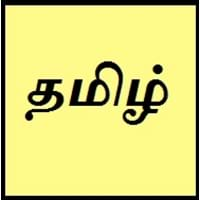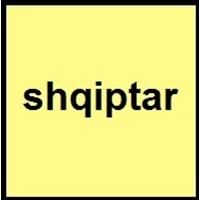Countries
Malaysia, Mauritius, Puducherry, Singapore, Sri Lanka, Tamil Nadu
Albanian diaspora, Southeastern Europe
National Language
Singapore, Sri Lanka, Tamil Nadu
Albanian diaspora, Southeastern Europe
Second Language
Andaman and Nicobar Islands, kerala, Puducherry
Kosovo, Macedonia, Serbia
Speaking Continents
Asia
Europe
Minority Language
Canada, Malaysia, Mauritius, Reunion, Seychelles
Italian Repubilc, Montenegro, Republic of Macedonia, Republic of Serbia, Romania
Regulated By
Official language Commission of Government of Tamil Nadu, Thanjavur Tamil University
Academy of Sciences of Albania, Tirana
Interesting Facts
- Tamil is the oldest language in the world. Tamil was spoken in South India more than 5000 years ago.
- The first legally recognized Classical Language of India is Tamil.
- Albanian Language has adopted words from Latin, Greek, Turkish, Italian and Slavic languages.
- 74% Albanian people are atheist, they never go to church or mosque.
Similar To
Malayalam
Romanian
Derived From
Not Available
Not Available
Alphabets in
Tamil-Alphabets.jpg#200
Albanian-Alphabets.jpg#200
Writing Direction
Left-To-Right, Horizontal
Left-To-Right, Horizontal
Hello
வணக்கம் (Vanakkam)
Përshëndetje
Thank You
நன்றி (Naṉṟi)
Ju faleminderit
How Are You?
நீங்கள் எப்படி இருக்கிறீர்கள்? (Nīṅkaḷ eppaṭi irukkiṟīrkaḷ?)
Si jeni?
Good Night
நல்ல இரவு (Good night) / irravu vanakkam (Good night)
natën e mirë
Good Evening
நல்ல மாலை (Nalla mālai)/ மாலை (irravu vanakkam)
mirëmbrëma
Good Afternoon
பிற்பகல் வணக்கம் (perpagal vanakkam)
mirëdita
Good Morning
காலை வணக்கம் (Kaalai Vanakkam)
mirëmengjes
Please
தயவு (Tayavu)
Ju lutem
Sorry
மன்னிக்கவும் (Maṉṉikkavum)
Me fal
Bye
சென்று வருகிறேன் (Sendru Varukiren)
mirupafshim
I Love You
நான் உன்னை காதலிக்கிறேன் (Naan Unnai Kadalikiren)
unë e dua ju
Excuse Me
என்னை மன்னியுங்கள் (Eṉṉai maṉṉiyuṅkaḷ)
Më falni
Dialect 1
Kongu
Gheg Albanian
Where They Speak
Kongu
Albania, Kosovo, Macedonia, Montenegro, Serbia
How Many People Speak
Not Available
Dialect 2
Madurai Tamil
Tosk Albanian
Where They Speak
Madurai, South Tamil Nadu
Albania, Greece, Kosovo, Republic of Macedonia, Turkey
How Many People Speak
Not Available
Dialect 3
Tirunelveli Tamil
Arbëresh
Where They Speak
South Tamil Nadu, Thoothukudi, Tirunelveli
Italy
How Many People Speak
Not Available
Speaking Population
Not Available
Native Name
தமிழ்
shqip / gjuha shqipe
Alternative Names
Damulian, Tamal, Tamalsan, Tambul, Tamili
Not Available
French Name
tamoul
albanais
German Name
Tamil
Albanisch
Pronunciation
[t̪ɐmɨɻ]
[ʃcip]
Ethnicity
Tamil people or Tamilans
Albanians
Language Family
Dravidian Family
Indo-European Family
Subgroup
Not Available
Not Available
Branch
Not Available
Not Available
Early Forms
Old Tamil and Middle Tamil
Old Albanian
Standard Forms
Modern Tamil
Standard Albanian
Language Position
Not Available
Signed Forms
Signed Tamil
Albanian Sign Language (AlbSL, in Albanian Gjuha Shenjave e Shqipe)
Scope
Individual
Individual
ISO 639 6
tam
Not Available
Glottocode
tami1289, oldt1248
alba1267
Linguasphere
tami1289
55-AAA-aaa
Language Type
Living
Living
Language Linguistic Typology
Subject-Object-Verb
Subject-Verb-Object
Language Morphological Typology
Not Available
Synthetic
Tamil and Albanian Speaking population
Tamil and Albanian speaking population is one of the factors based on which Tamil and Albanian languages can be compared. The total count of Tamil and Albanian Speaking population in percentage is also given. The percentage of people speaking Tamil language is 1.06 % whereas the percentage of people speaking Albanian language is Not Available. When we compare the speaking population of any two languages we get to know which of two languages is more popular. Find more details about how many people speak Tamil and Albanian on Tamil vs Albanian where you will get native speakers, speaking population in percentage and native names.
Tamil and Albanian Language Codes
Tamil and Albanian language codes are used in those applications where using language names are tedious. Tamil and Albanian Language Codes include all the international language codes, glottocodes and linguasphere.





